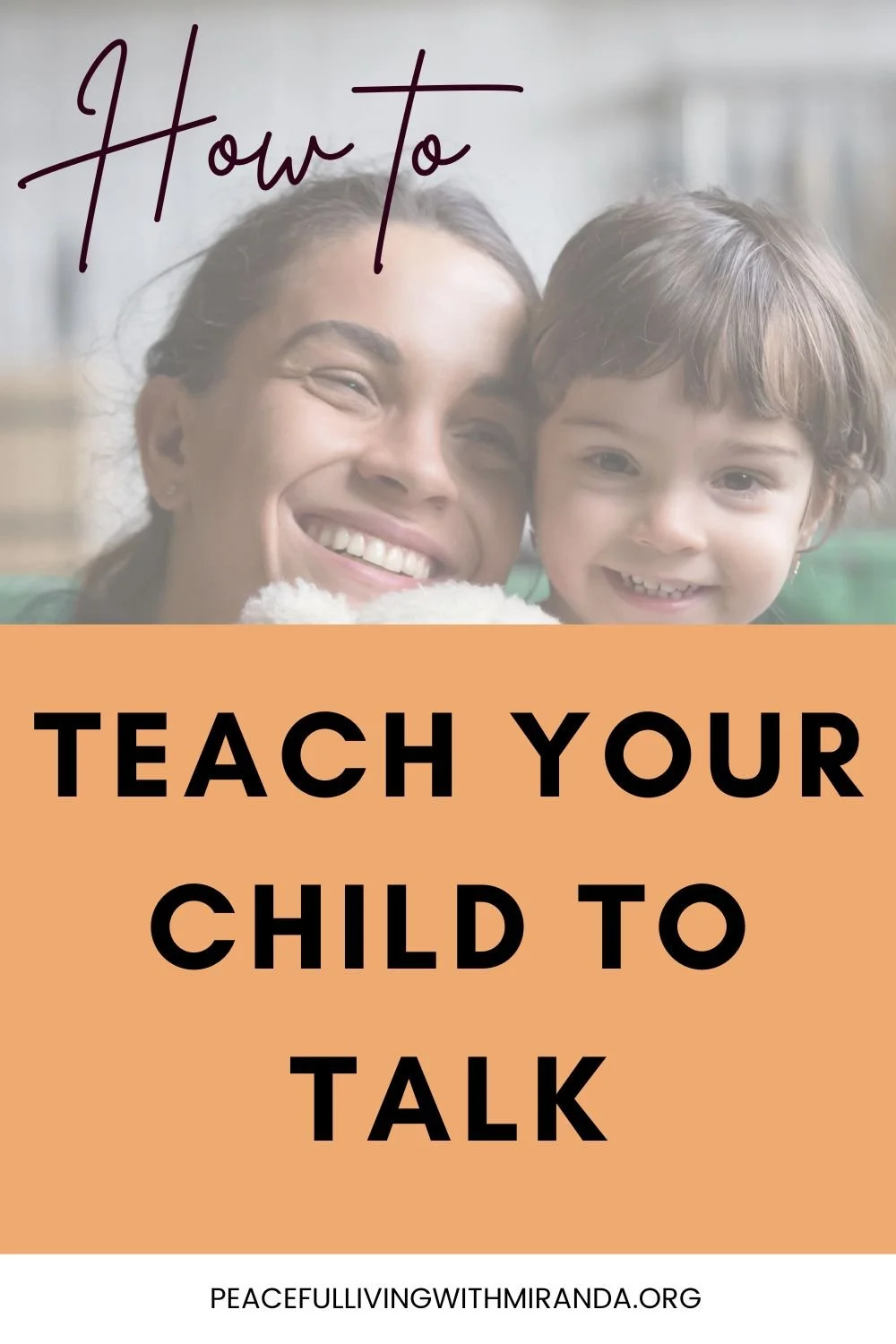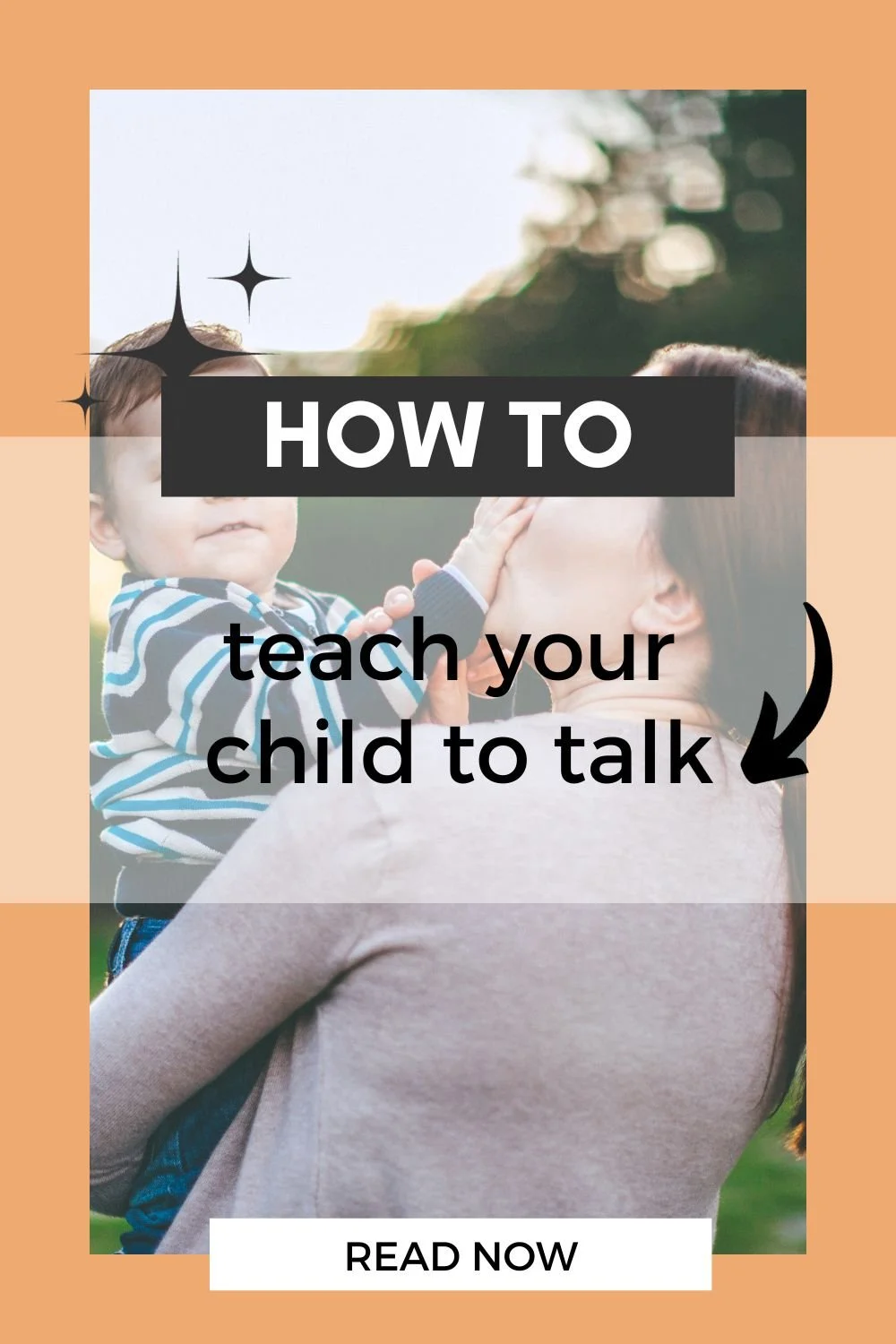How to Teach your Child to Talk
Teaching your child to talk is a very important part of early parenting.
Have you ever tried to talk to someone in another language? Or tried to understand what someone else’s small child is saying in a mumbling voice?
Many parents struggle with the 'how' of teaching their child to talk. Read this to find out my strategies and how I taught my own child to talk from a young age.
Teaching our child to talk is a big part of our parenting when our children are very small.
We can’t wait for our babies to learn how to talk, show they understand what we are saying, and when we can start to understand them too!
**Disclaimer: This post contains affiliate links, which means I may earn a small commission from any product purchased through this page (at no cost to you).**
We can’t wait for our babies to learn how to talk, show they understand what we are saying, and when we can start to understand them too!
A recent post on my Instagram account says
‘Communication is everything when it comes to social interaction, family interaction, academic achievement and emotional intelligence.’
We need to make sure our children learn how to communicate openly and effectively, for their own health and success in life.
Read the blog here for some great activities for preschoolers!
So how can you teach your child to talk?
How can you teach your small child some basic communication skills as they enter toddler/preschool/early school years?
1: Talk TO your children.
Actually involve them in discussion. Don’t just talk about them as if they were inanimate objects.
They may be small, but they need to learn how to be part of a conversation and the confidence that comes with this. Talking 'to' your child is extremely important, as a parent who consulted with me says:
"I think it made me more confident in techniques, but also teaching myself to talk WITH my kids, not AT them!"
Talking with your child means they feel like they are treated like another person, and also it helps them to think, behave and function with more expectation-following their own development in a curious way, by anticipating being able to talk like you.
2: TEACH them how to talk.
Not just ‘ta’ and ‘please’-but actually tell them the meaning of words (in a quick sentence) so they can then USE those words! Many a child has used a word without knowing what it meant (hilarious sometimes) but generally we need to make sure they understand what they and we are meaning and saying.
Teaching your child how to talk is not as simple as sounds. It involves all these different aspects as well:
Understanding words in context (ie: not using the word 'foot' to describe their eye!)
Forming sounds well with their mouth, tongue and lips
Understanding that words are the gateway to communicating and getting what you want, or asking why you don't!
3: Let your child ask you questions-and ask them questions back.
Kids learn a great deal through questions-and they vary greatly! (Again, hilariously!) NEVER belittle any question a child asks you, but answer succinctly and to the best of your ability.
You can always say ‘I’ll tell you that when you’re older’ or ‘I’ll tell you a bit later, OK? Remind me!’ (Make sure you DO tell them.)
The question that seems to always come up on this point is ‘What if the question is about sex?’ I don’t see why this is that different, really-it’s part of life, right? I made a Youtube video about it, check it out! (I told my daughter around 5)
Find out what calming space ideas you can use for a calm space in your home!
Bonus tip:
When you ask your child questions about themselves or their activities, don’t forget to give them ‘wait time’
Wait time is 5-10 seconds silent waiting- so they can have the opportunity to answer your question, before you hit them with the answer you expect or another question.
Kids take a few minutes to manage to communicate (See the topic of this post!) and often a perceived 'lack of ability' to answer is the lack of time given for them to actually structure and say what they want to say.
This is so easily overlooked but so important!
How do you teach your child to communicate effectively? Do you use any of these ideas already?
Miranda offers sessions for mums who are stressed, overwhelmed and need to deal with their own emotional struggles - so you don’t push them onto your kids! As an experienced teacher, with a graduate cert in positive psychology and a life/stress management coach, Miranda is uniquely equipped to help you with their children’s behaviour and building connection as well as build your own capacity to be the mum you want to be. Book a session here - new clients are 30% off!




